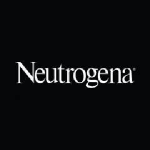

First up let’s get one thing clear – there’s nothing wrong with getting older.
The wisdom and perspective that comes with the years ticking by is priceless…but diminishing lines a little and looking a bit more glowy while it happens doesn’t hurt, either.
So, at what age, or life stage, should you start to use anti-ageing products? There’s different products and ingredients depending on your needs.
Sun care.
Sunscreen is considered an anti-ageing product for its preventative properties. A daily application of SPF to your face, neck and chest is so important, even on cloudy days or when you’re just travelling to and from work or running errands. The reason being that UVA rays are in the atmosphere the entire time it’s daylight, and small amounts of damage from UVA accumulate over time.
Getting into a good sun care routine in your 20s will set you up for healthier looking skin as you move through your 30s and 40s. Look for a good quality facial sunscreen and work it into your routine as a new step, or ensure your day cream and foundation both have SPF qualities.
Retinol.
Retinol is king when it comes to anti-ageing ingredients. There are lots of types of retinol, many of them having variations of the name, which can be confusing.
Anti-ageing pros Neutrogena have patented a type of retinol, which is called Accelerated Retinol SA. It’s a form of pure stabilised retinol that gently and effectively works to reduce visible signs of ageing, starting in one week of use.




























































































